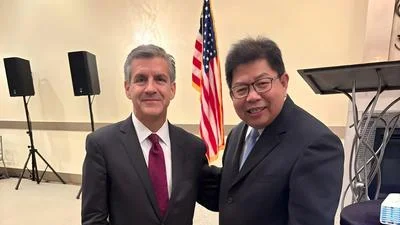Adobe Stock
Adobe Stock
Rep. Jeanne Ives (R-42nd) was one of 34 House members to vote against the new state school funding formula contained in Senate Bill 1947 because its evidence-based model won't work, she said.
In a written response to the bill’s passage, Ives said that the formula directs property tax relief to 32 specific school districts, and Chicago Public Schools (CPS) benefit disproportionately because of the complexities in the funding equation.
“The bottom line is that Chicago has enough property wealth to pay for its own schools,” Ives told Prairie State Wire. “It’s outrageous.”

Rep. Jeanne Ives (R-42nd)
| jeanneives.org
Ives accused Chicago’s leadership of skewing the numbers on property tax to put CPS into “Tier 1” status, which will give it more state assistance. One way to do that is through tax increment financing (TIF) districts, which allows districts to put money into a pot earmarked for specific infrastructure improvements. Ives said that TIF money is exempt from analysis under the new formula.
“It’s a way for them to hide their wealth,” Ives said. “You can hide it from the school funding formula that way.”
Ives also mentioned the under-assessment of properties as another layer of obfuscation when it comes to examining real numbers on property taxes.
However, much of Ives’ ire is reserved for the issue of pension reform.
A major part of what’s stressing state and municipal finances is pensions, and Ives said Chicago went to the state years ago to get permission to underfund its pensions, with the result being a “legacy cost” that is baked into the city’s financial equation.
“We have allowed local governments off the hook to (avoid) fully funding their pensions,” Ives said. “Every school district should have to pay their own pensions.”
Another aspect of the bill that Ives said could be misleading is a plan to allow students in certain districts to receive scholarship money based on evaluations of low-performing districts.
One benefit to these districts, Ives said, is that the school will still receive funding if a student chooses to take the scholarship money and leave, but she warned that some residents might have the misconception that students in their districts will get scholarships, when in reality the scholarship money will be awarded only in those key “focus districts.”
On the whole, Ives said, the scholarship program is not one of the worst parts of the bill. In general, she said, it comes down to inequities in how a school funding bill serves districts.
Ives said she and others will be digging deeper into the finances to try to show how, without further reform, taxpayers around the state will end up carrying some of Chicago’s burden.






 Alerts Sign-up
Alerts Sign-up